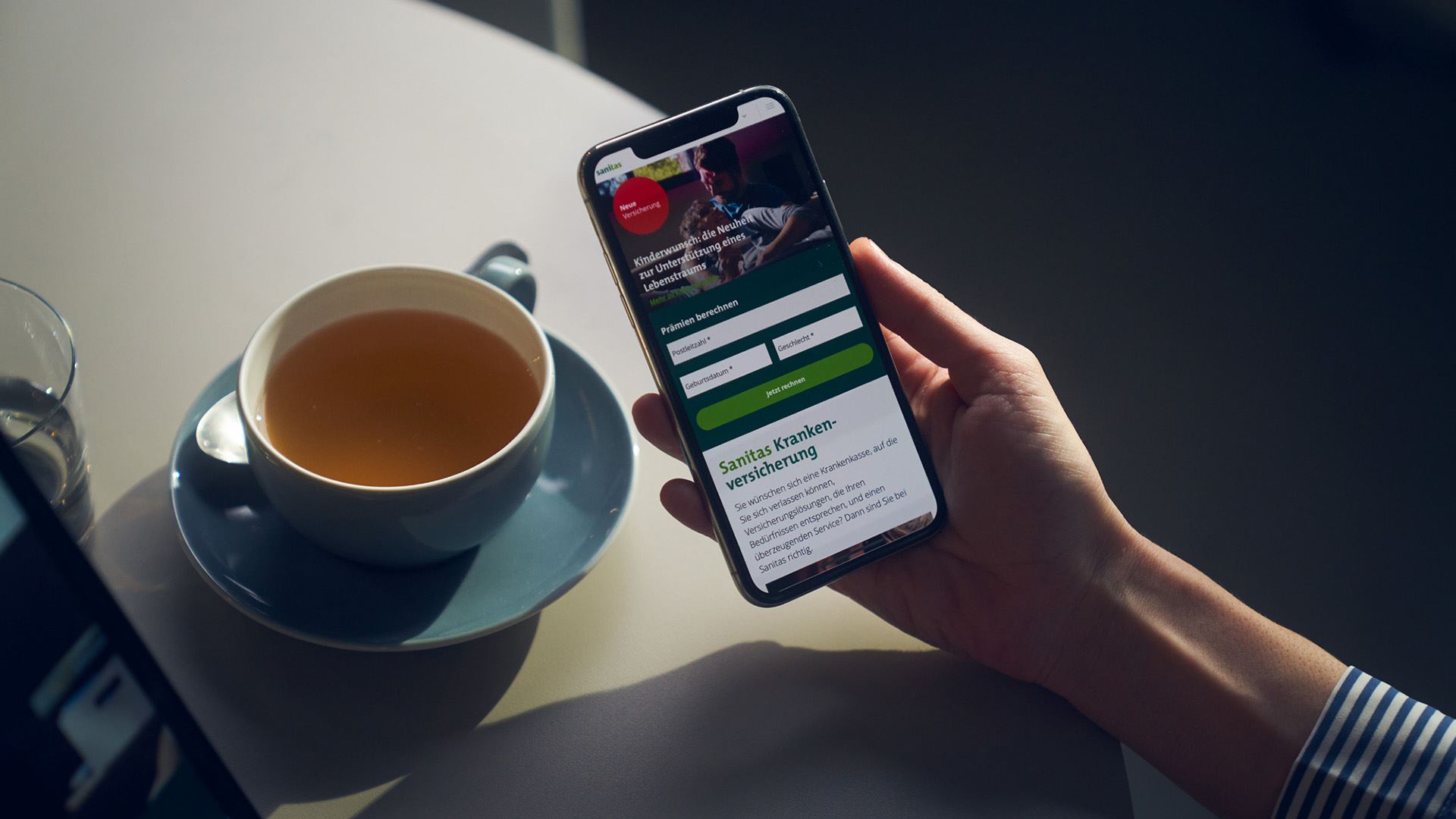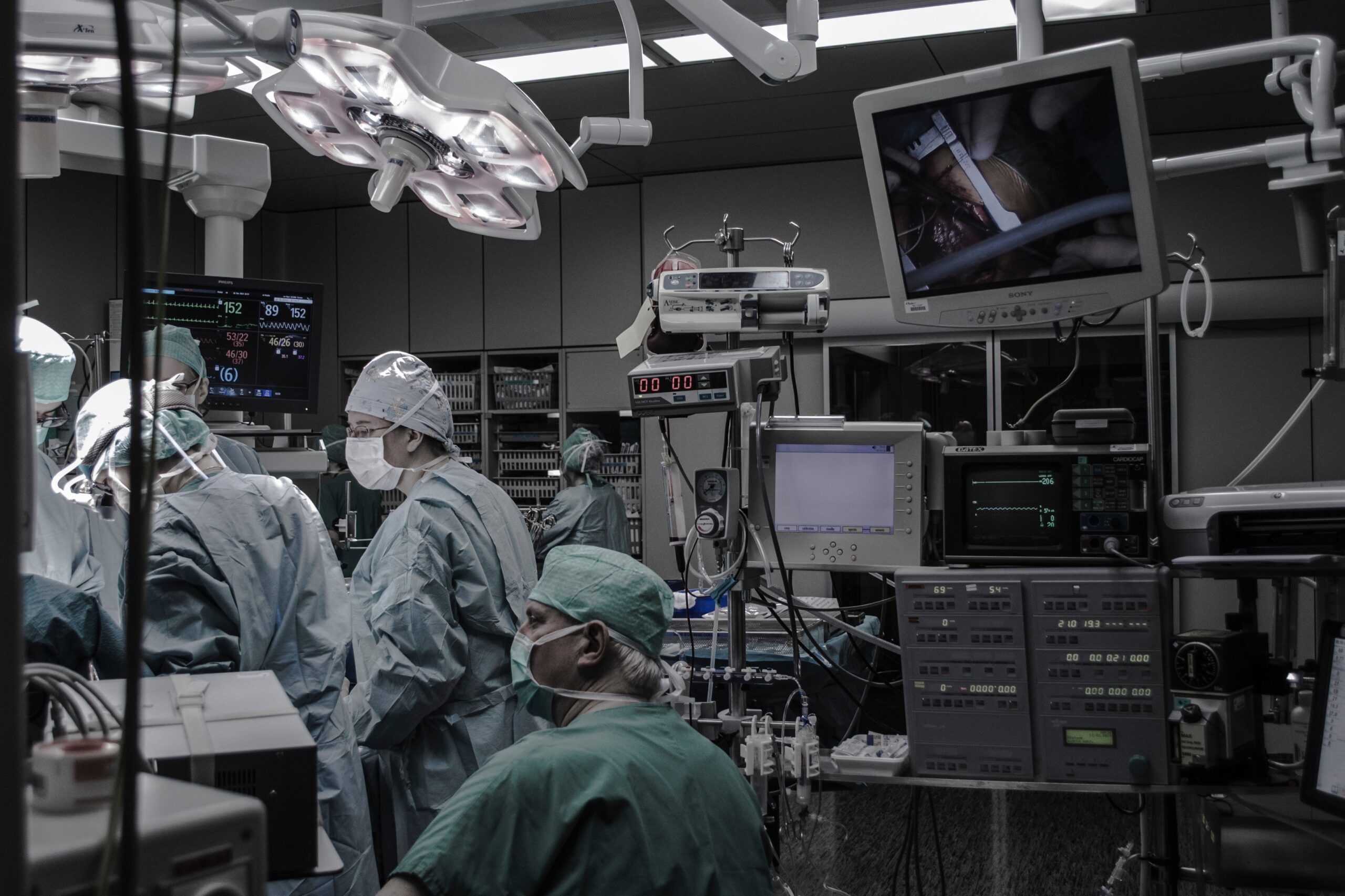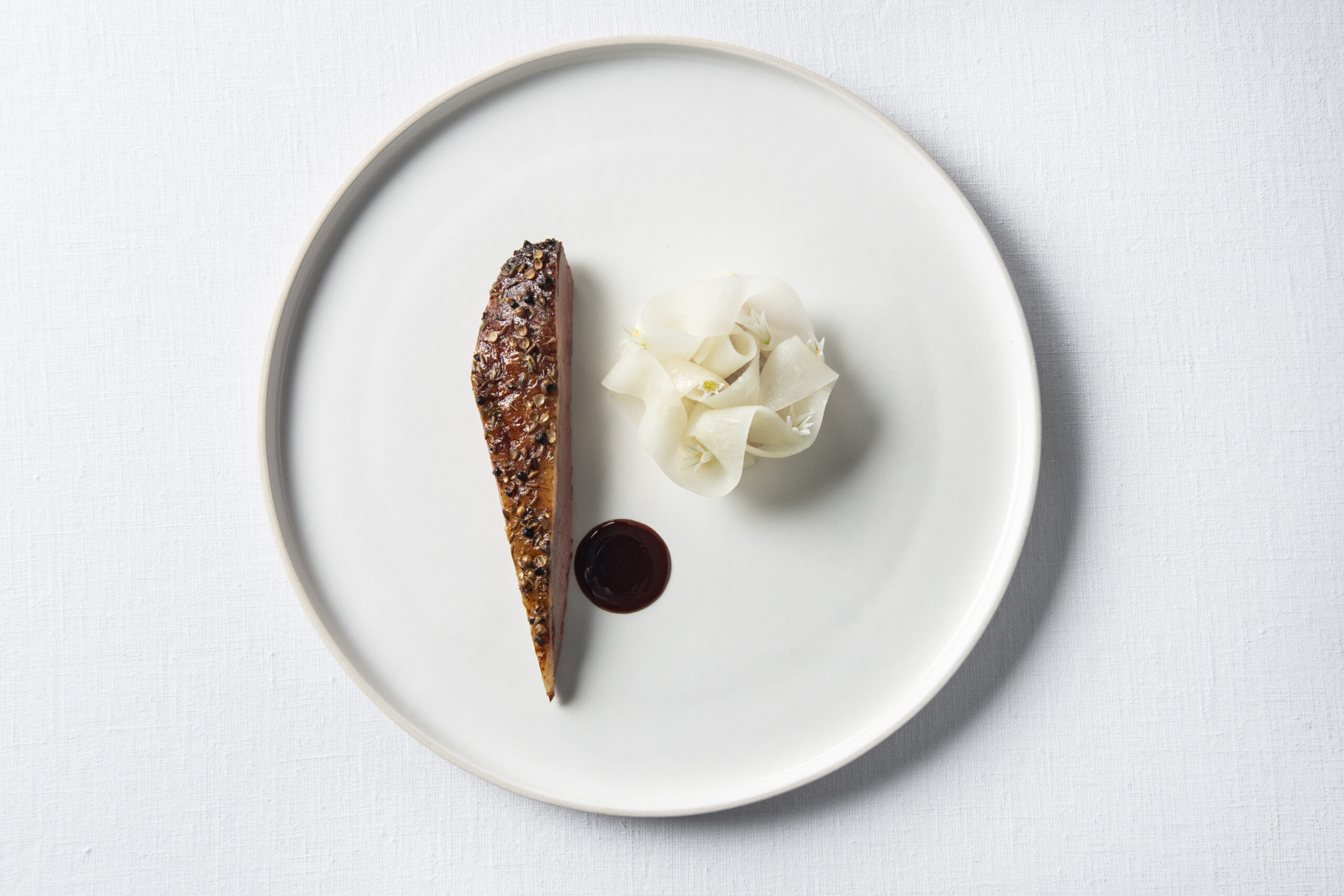Every day, in a goal to be our best selves, we stick to lots of little healthy routines. We focus on what we eat and drink, what we put on our skin, and maybe if we’ve exercised. But what about your sleep? Have you ever thought about how much easier and better things can be when you master sleep? If you’re having trouble sleeping, or feel at times your sleep quality could just be better, then maybe it’s time. I mean, the phrase ‘in need of a good night’s sleep’ didn’t come from nowhere.
Got sleep issues? Here are a few words about mine.
For years I just climbed into bed, turned off the light and went to sleep. That’s what we do. Sometimes I’d sleep great, sometimes not so great. There have been periods when I really struggled. Like, really. I often used to leave work late, tired and exhausted, yet wired. I’d get home and knock back two Panadol Nights. Then I’d be out like a baby.
When the alarm went off, bam! It would snap me awake. Only waking up wasn’t great. I’d be groggy and not quite with it. So my morning protocol was to knock back a coffee, and then I’d be raring to go.That same night, and yes, the next morning, I’d repeat the cycle. It did the job. And so it became a habit.
I was borrowing from the bank and didn’t even realise it. Day in and day out I was gaining some short-term productivity from these go-to suppressants and stimulants, while surely causing long-term damage to my health. How did everyone else manage? After leaving the corporate world burnt out and exhausted, I was determined to pursue a more relaxed lifestyle. I found myself in Thailand chasing island life, but still with an appetite to immerse and apply myself. I was the director of a health and fitness retreat and had all things health at my fingertips. Sounds like the perfect solution, right?
Apparently not.
My sleep still didn’t want to work for me. There was stress, but different stress. And there were late working nights, but not the same as my previous big city life. Although I’d often skip dinner, I would make time to go to the 7-Eleven after-hours and buy a Magnum ice cream to keep me company while seeing to a bank of emails. In hindsight, I guess my Magnums were my new Panadol Nights. Something to look forward to at the end of a long day, that would help take the edge off things and give me comfort. Only this time it kept me up rather than knocked me out! And the craziest thing of all? I’m actually lactose intolerant! The things you do when you’re tired, hungry and stressed, right? Needless to say, the weight gradually piled on and my health nose-dived in more ways than one.
Now, I know it’s not clever to eat before bed (particularly sugar), and other energy inducing (or reducing) substances should not be relied upon, but life is busy right? We’re often running on borrowed time and want to make the most of every minute. So what’s the real solution to this thing we call ‘sleep’? We approach our nutrition and fitness through regimes that aim to improve results. Is there a way we can do this with sleep, no matter how pressed for time we are?
The state of sleep today.
What I experienced both in the corporate world, and while working in paradise, is increasingly more common in our sleep deprived society. We’re not really paying attention. There’s this crazy idea in business that it’s an achievement to be super busy. It’s how we often champion success. We rush around, patting ourselves on the back for getting so much done — or rather, being exhausted. Well done me. Even if we’re tired, it’s fine, we’ll grab a coffee or a Coca-Cola to keep us going. We’ll have an early night tomorrow. But often, tomorrow never comes. Or tomorrow does come, and despite getting into bed at a more reasonable hour with a good movie, our sleep just still isn’t working for us — at least not as we would hoped it would.
How much sleep should we be getting?
Margaret Thatcher needed four hours of sleep a night. I’m at my peak when I’ve had eight, which tends to be the number most people throw around as a recommended guideline. My grandma slept for five hours a night. Most people feel they need somewhere between the fives and the eights. Quite a big range, right? I mention these numbers to illustrate something: there’s no one perfect number when it comes to sleep. This tells us it’s in fact more a mixture of a quality and a quantity that’s right for you.
For quality, I’m talking about how good the sleep feels. Do you struggle to get to sleep? Do you wake up in the middle of the night? How do you feel about your night’s sleep when you wake up? Disappointed? Satisfied? When I say quantity, well it’s about the hours. The general recommendation is around seven to eight hours. But more importantly, how much makes you feel good? On form? How much keeps you energised for the duration of the day? Or lacking in some way? Or multiple ways?
This is what tells us how much sleep you need.
I’m just going to say it… sleep is SO important.
The effects of sleep deprivation can be severe. It impacts your health, your immunity, your appearance, your mood, how you age, your physical performance, your metabolism, your appetite, your productivity… you get the picture.
Lack of sleep challenges everything in our lives.
To handle all this, we start playing scientist. We try our hand at experiments that mix different stimulants and suppressants, thinking we’re finding the solution to our problem. We’re forcing our bodies out of their natural states. But actually, we’re playing more nurse than scientist, putting on a plaster to just cover the problem up. Is it time we finally gave sleep some TLC? Well, I made this my most recent experiment and here’s what I discovered. Ten tools to master sleep.
One night at a time.
Until a few years ago, I’d often lie in my bed scrolling through social media on my phone. One night I was so tired but I just kept scrolling. Then suddenly, the phone smashed into my face… smack-bang on the forehead! It was literally the wake-up call I needed to start investing in my sleep.
After a lot of research, reading and good old-fashioned trial-and-error, I’ve learnt that sleeping is one of the greatest skills you can invest in — and one that you can easily master with some simple actions (no Panadol Nights or Magnum consumption included), combined with some trial and error, plus persistence. Here are my top 10 strategies that have revolutionised my approach to sleep and can do the same for you. Some you may never have imagined could be so effective.
Implement these and you’ll be on track for an even better night’s sleep. But remember, there is no one silver bullet for sleep. Improvements are not going to happen (excuse the pun) overnight. Play around and experiment for yourself. Find what’s right for you, and soon you’ll start to reap the benefits.
So, let’s jump in.
Let’s become masters at sleep.
Tool 1. Make your bedroom for sleep, and sleep only.
What else do you find yourself doing in your room, other than sleep? Are you doing your homework in there, or using it as a home office? Is it your store room? A bit of a dumping ground when you’re rushing in and out? Do you often watch TV in your bedroom, or lift some weights that live shoved away in a corner? All these things are messing with a space that ought to be your sleep sanctuary. A space that’s reserved for peaceful, calm and relaxed energy only, ultimately breeding and promoting an optimum sleep environment. Personally, I keep things minimal. I even keep my clothes in the wardrobe outside my room. I like my bedroom to feel like a serene blank canvas with no distractions.
So maybe it’s time to change your ways a little. Make your bedroom a sanctuary for relaxation and sleep only. And keep it clean and tidy. Tidy room, tidy mind.
Tool 2. Keeping things cool.
For good sleep, we need to be mindful of our body temperature. The idea is to try to manage this as much as possible. For the record, they say sleep is often disturbed when your bedroom temperature is not between 16°C to 19°C (60°F to 66°F). Your choice of bedding will make a big difference. Polyester and other synthetic fabrics are convenient and good value, but not very breathable. They trap the heat. Invest in natural fabrics such as bamboo or 100 percent cotton that wick moisture and are super breathable. Now we’re helping to regulate the right body temperature.
Then take a good look at your mattress and what that’s made of. Think about it. Those with latex mattresses: natural latex or synthetic? Those with memory foam: temperature-sensitive or not? Those with spring mattresses containing metal coils: covered in other fibres and fabrics? Makes sense, right? The same goes for your pillows and duvets. Depending on if you’re more a hot sleeper or a cold, all these considerations will influence your sleep. You might end up spending a little more money, but just think: you spend about six to eight hours a day wrapped in your sheets. That’s around 33 percent of our lives. It’s worth it.
Lavender is also a body cooler. It helps to lower your body temperature, slows your heart rate and gets you closer to phase two of sleep where your core temperature drops. So go out and get some some lavender, spray it around your room, sprinkle a few drops on your cool linen pillow, or even dab some on an eye mask.
Tool 3. Grow fresh air.
We need fresh air and good air circulation. This isn’t just above having great oxygen to breathe well. It’s about limiting the CO2. If you have an air conditioning unit that’s just recycling the same air, then crank open a window. Some plants can be really great too. Have you heard of a Mother-in-Law’s Tongue? It’s commonly known as the ‘bedroom plant’ because it’s particularly good at getting rid of toxic CO2 and converting it into oxygen at night. So pop one on your windowsill. If you spot any dust or mould, get rid of it straight away. That stuff is toxic, inflammatory and can cause problems breathing. We’re all about promoting the best oxygen for better breathing, for better sleeping.
Tool 4. Empty your mind.
After a busy, exhausting day, you fall into bed. You turn out the lights, curl up under some cool sheets and close your eyes. Then you start thinking about everything that needs to be done tomorrow, all the many to-dos, and the next thing you know you’re putting out imaginary fires. Sound familiar?
Let’s remove the cause of the fire before it even takes place. Rather than reaching for your phone until you snooze off, I suggest creating a bed log. Every evening spend two minutes writing in the front of your notebook (not into your phone) all the things you need or want to do the next day. In the back write down a few thoughts or reflections from your day. Anything! Just brain dump. Empty your mind a little. Keep it positive. Try writing down the things you did that day that made you happy and proud, however small. And then get into bed. This way you can start your morning with a list of actions and a reminder of how much you’ve achieved already. You see, your bed log also serves you as your gratitude journal or personal brag-list.
Tool 5. Make friends with magnesium.
Magnesium helps relieve insomnia, reduce cortisol (our ‘stress hormone’), and helps our muscles to relax. Epsom salts in a hot bath, a magnesium scrub or magnesium oil in the shower are great ways to get your fix. The hot water relaxes and opens your pores and allows those large magnesium molecules to be absorbed straight into your skin, inducing a sleepy state — better than any magnesium tablet. Slip on your pyjamas, climb into bed and once your head hits the pillow you’re pretty much there. You’ve signaled to your body that it’s time to sleep.
Tool 6. Face dunk in ice cold water!
Sounds more like a freezing cold wake-up call than a technique to help you drift off, but face dunking actually lowers your core temperature. It rapidly reduces inflammation and puts your body in a drowsy state. Honestly! It switches your body off. Think Leonardo DiCaprio in Titanic. If you don’t have an ice bath — and let’s be honest, who really keeps one in the home? — simply put some ice in a bowl and face dunk to get 50 percent of the benefits of a full body ice dunk. Be generous with the ice. You need to keep at it for at least two to three minutes to gain the effects.
Tool 7. Get more sun.
Sunlight is very important. It builds up our melatonin stores, increases vitamin D levels and boosts our immunity. So it’s a triple whammy. Melatonin is the one we’re interested in right now. It’s your body’s natural sleep hormone. As you’re in the sunlight during the day, your pineal glands open up. The light comes into your eyes and melatonin begins getting stored in the gland. It’s like a fridge being filled with bottles of water as the day goes on. Slowly, you build up that melatonin supply. Over time, as the sun goes down, it starts being released. The water is handed out. Until finally, bam! It has released enough melatonin that it’s time for sleep. So get your rays when you can to get your sleep in order.
Tool 8. Reduce light after sunset.
Think back to a time when you went camping. The sun goes down at six-ish. You light the campfire, you get cosy, sing songs and eat toasted marshmallows. A few hours later you’re ready for bed. Even the rock-hard floor becomes a sleep haven. Here’s why: Three to four hours after the sun goes down the melatonin you stored up during the day is fully released, and you have no choice but to sleep. It’s a natural circadian rhythm. Now let’s bring you back home. In the evenings, if you start turning on bright white artificial lights you’re interrupting your natural rhythm. Light signals to the body that the store of melatonin doesn’t need to be released. The solution here is to have less light exposure, particularly the bright fluorescent white lights, after sunset. So dim the lights and embrace a bit of mood lighting. See the next tool for more on this.
Tool 9. Lights! Screens! Blackout!
Where are you come sunset? Still in the office? At the gym? In the supermarket? If the lights (wherever you are) are too bright for this time of day, you might have to reconsider your evening routine. Once home, use amber bulbs, candles or covered lampshades in the evening. These are similar to fire light and don’t affect the release of melatonin which is needed at this time. Plus, it also creates a rather soothing environment. Light emitted from our phones and computer screens is particularly harmful to sleep and your health generally, and is considered the anti-sleep drug. If you have to be on your computer working late, there’s a great app called f.lux that I’ve recently discovered. It automatically changes the light on your screen as the sun sets to a more gentle, amber tone.
In general, turn your phone and screens off at least an hour before bed. We all know this one. Don’t bombard yourself with the extra light or extra info minutes before you want to switch off. Any light hitting your skin can change your quality of sleep — even if it’s only hitting your eyelids. So go ahead and cover any LED lights (usually small, red and glowing) on your DVD or TV players with tape. Get yourself some blackout curtains so any outside light or street light doesn’t disturb you. Leave a tiny amount of room when they’re closed for the natural daylight to creep in gently in the morning.
Tool 10. Feeding a good sleep.
Ok. This is quite a big area but I’ll just cover some key points for you. It takes our bodies around three hours to digest a meal, so quite simply, don’t go to bed on a big meal. You’ll find it hard to sleep. Your body is still hard at work digesting and you’re trying to tell it to stop. Try to eat light in the evening and time it well. There are a few foods to embrace, some to avoid and others just to go easy on. Fatty fish can be great. Things like salmon have DHA and Omega 3s, both of which are anti-inflammatory. But remember to watch your portion. Sugar and carbs are hard on sleep. They’re rocket fuel to your sugar and insulin levels. Self-explanatory really. Spicy foods can lead to bloating and heartburn while increasing your core temperature. Salt is dehydrating, which isn’t good for rest either.
Alcohol is a funny one. It seems like a sedative at first, with a good glass of wine helping us unwind. But it’s bad for sleep overall. Once the sleep wears off, the sugar, inflammation and dehydration hits you. A warm drink at night can be really relaxing alternative. However, there’s no scientific proof that a warm glass of milk helps us sleep better, and actually this can be quite inflammatory. I’d recommend a relaxing camomile or light herbal tea instead. It aids digestion, is hydrating and soothing. When it comes to herbs, holy basil, valerian root, and ashwagandha can all help you sleep. Just be careful as these, particularly valerian root, can be quite strong and may make you groggy in the morning.
Does this mean you should cut out all these things? Not necessarily. It’s about that optimal blend for you and listening to your body. Becoming aware. Go easy on your body during those sacred hours before it is ready to gently slip into its well and truly earned rest and recovery phase.
You’re now on your way to becoming a sleep master.
Well. There we have it. Some simple hacks to help you upgrade your sleep. There’s plenty more of them, these are just a handful of some of my favourites.Experiment and play with the tools above. Think of sleep training like just another step in your health and fitness regime. Introduce one thing at a time. Bit by bit. Give them a go. Allow your sleep the same level of attention you dedicate to other things in your life. And know that these changes, without a doubt, will make a difference.
It’s all about working out what’s best for you. So off you go. It’s time to master your sleep.
Dream big.
Phil Anthony M
Head on over to www.PhilAnthonyM.com for more inspiring stories, smart ideas and great tools to help you realize just how much easier and better things can be.






